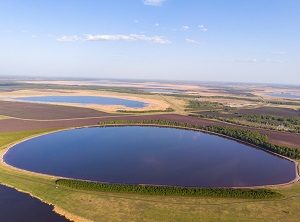Please activate JavaScript in your browser to use all interface options.
- About rosneft
- Corporate governance
-
Business
Upstream
- General Information
- Licensing
- Geological Exploration
- Reserves and resources
- Production and Development
- Gas Business
- Offshore projects
- Offshore equipment
Downstream
- General information
- Petroleum refining
- Gas Processing
- Petrochemistry
- Catalyst plants
- Production of lubricants
- Sales of oil products
- Sales of Petrochemical products and LPG
- Gas Sales
- Gas Motor Fuel Sales
-
For Investors and Shareholders
- Corporate documents
- Financial statements, presentations, annual reports
- LSE RNS disclosure
- Investor calendar
- Rosneft: Contributing to Implementation of UN Sustainable Development Goals
- ESG
- Equity
- For Insiders
- Shareholder’s Personal Account
- General shareholders' meeting
- Dividends
- Questions and answers for shareholders
- Investor tools
- Contacts
- Beware of fraud!
- Sustainable Development
- News room
Scientists Supported by Tyumenneftegaz Discover Red Listed Plants in Tyumen Region
26 December 2022
Tyumenneftegaz, part of the Rosneft oil production complex, has summed up the results of a grant project to study Lake Solenoye. Tyumen State University scientists have documented 428 species of animals, plants and fungi in the vicinity of the lake, 10 of which are listed in the Red Books of the Tyumen region and Russia.
Preservation of the environment for future generations is an integral part of the corporate culture and social policies of Rosneft. The Company has a number of comprehensive programmes for the conservation and restoration of natural resources, including the use of modern technology.
Solenoye Lake is a unique natural site in the Tyumen region. The hydrochemical composition of its water is comparable to that of the Dead Sea. There are also mud deposits, estimated at about 2 million cubic metres, which can be used for balneotherapeutic purposes. It helps with skin diseases, cardiovascular diseases, nervous disorders and musculoskeletal problems.
Within the grant project, scientists, together with the company’s ecologists, developed rules for visiting Lake Solenoye. It is recommended to reduce the one-time human-induced impact when visiting the lake, to limit the presence of people in areas with rare plant species, and to remove the unique therapeutic mud from the lake. These simple rules will help to preserve not only the lake’s unique healing water, but also the rare and varied flora and fauna in the area.
Note for Editors:
Tyumenneftegaz, a subsidiary of Rosneft, is developing the Russkoye field, located in the Tazovsky district of the Yamalo-Nenets Autonomous District. The Russkoye field is classified as unique in terms of oil reserves.
Rosneft
Information Division
December 26, 2022
Keywords: Environmental news 2022

-315xx70.png)

